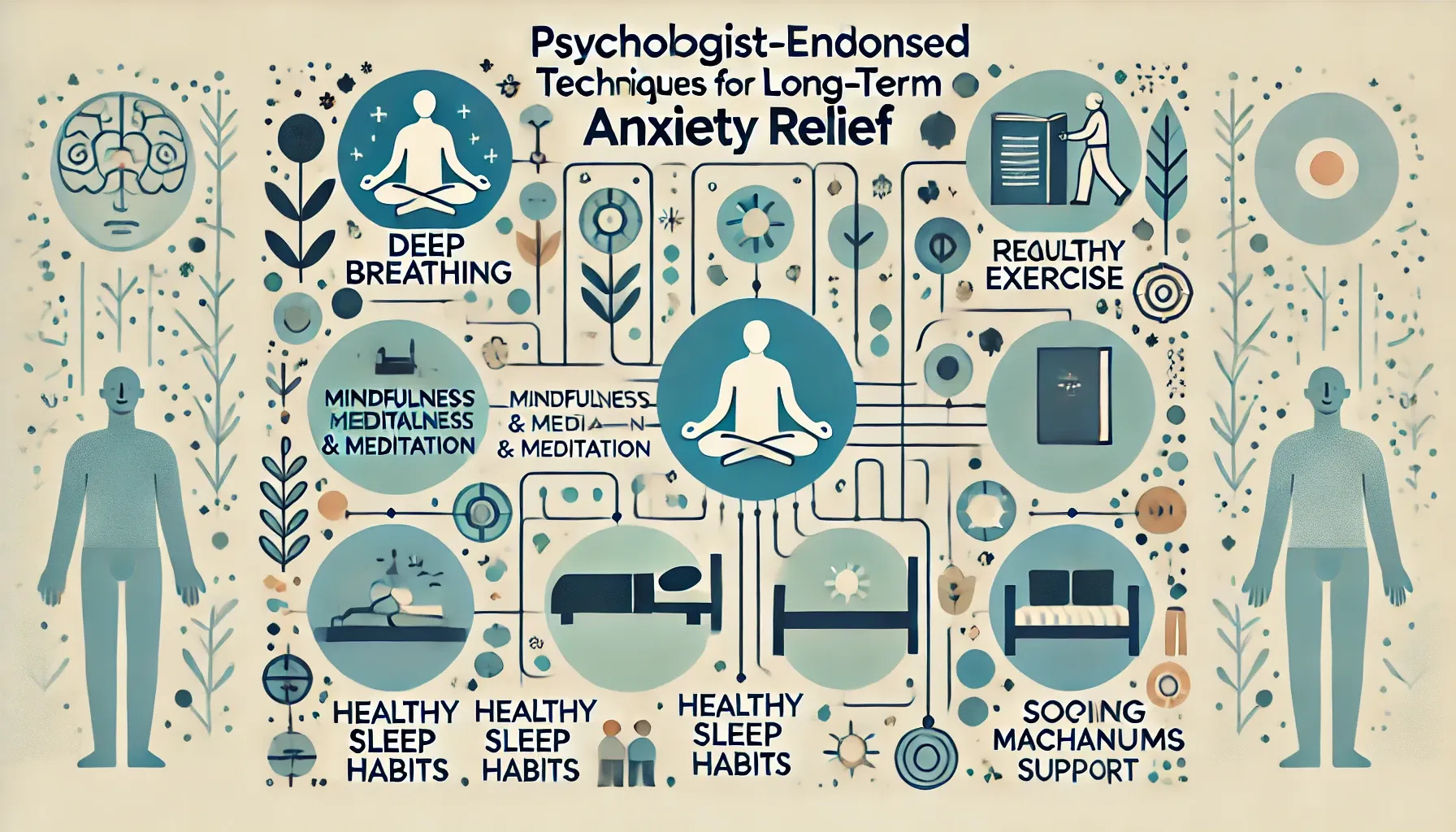Psychologist-Endorsed Techniques for Long-Term Anxiety Relief
Anxiety disrupts daily life for millions, but psychologists have developed evidence-based techniques for lasting relief. These strategies go beyond quick fixes, fostering resilience and calm. Here are key methods for long-term anxiety management.

1. Practice Deep Breathing Exercises
Deep breathing is a simple yet powerful tool for calming the mind and body. By focusing on slow, steady breaths, you activate the parasympathetic nervous system, which naturally reduces anxiety and slows the heart rate. This technique helps counter the body's stress response, making it a useful tool during moments of heightened stress. Practicing mindful breathing regularly can build emotional resilience, helping you stay grounded in stressful situations.
2. Embrace Mindfulness and Meditation
Mindfulness involves staying present and fully engaged in the current moment. By focusing on "the now" instead of worrying about the past or future, you can reduce negative thought patterns. Techniques like mindful meditation, body scans, or simply observing your surroundings without judgment foster mental clarity. Psychologists recommend incorporating mindfulness practices into daily routines to promote emotional balance and reduce mental clutter.
3. Stay Active with Regular Exercise
Physical activity is one of the most effective natural remedies for anxiety. Exercise releases endorphins—chemicals that boost mood and promote relaxation. Research shows that consistent physical activity lowers anxiety, enhances mental clarity, and strengthens emotional well-being. Activities like walking, running, yoga, or dancing can become daily rituals that foster a strong connection between mind and body.
4. Prioritize Sleep and Maintain a Healthy Routine
A healthy sleep schedule is essential for mental well-being. Psychologists stress that quality sleep helps regulate the brain's stress response, making it easier to manage anxiety during the day. To improve sleep quality, establish a regular bedtime, avoid caffeine in the evening, and limit screen time before bed. Proper sleep allows the brain to recharge, fostering a more focused, calm, and clear mind.
5. Build Healthy Coping Mechanisms
Effective stress management requires healthy outlets for negative energy. Psychologists recommend coping methods like journaling, creative expression, and goal-setting. These activities encourage emotional processing, allowing you to better navigate life’s daily challenges. Healthy coping strategies provide a constructive way to redirect anxious thoughts, fostering a sense of control and emotional stability.
6. Seek Social Support
Strong social connections can significantly ease anxiety. Psychologists emphasize the importance of talking to friends, family, or support groups to process emotions and feel understood. Sharing your thoughts and experiences with others reduces feelings of isolation and provides a sense of belonging. This emotional support system strengthens mental resilience, making it easier to navigate life’s uncertainties.

